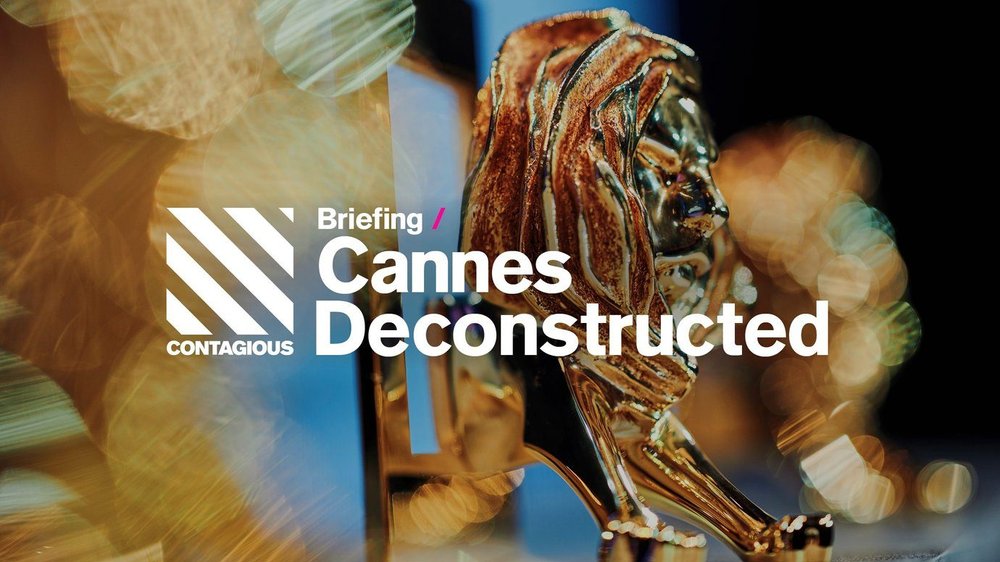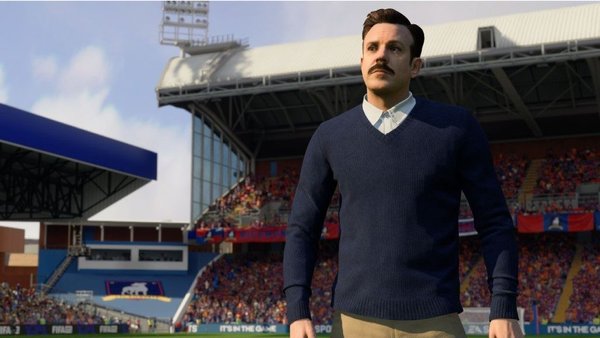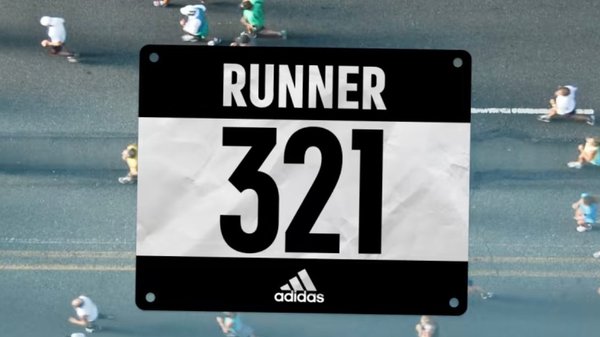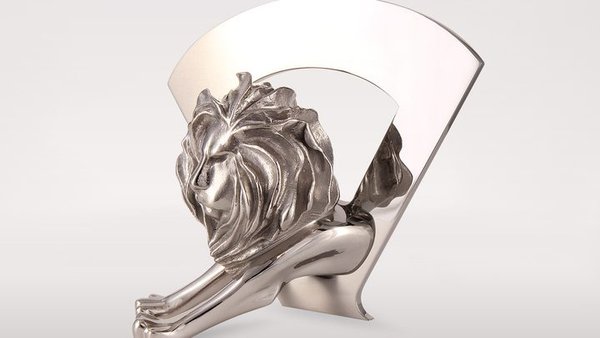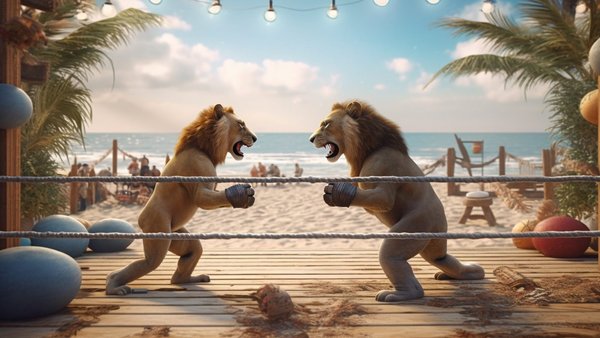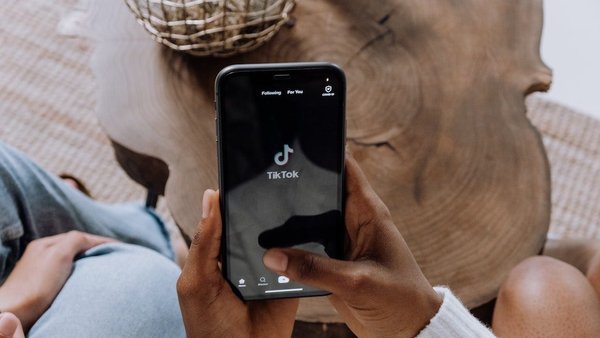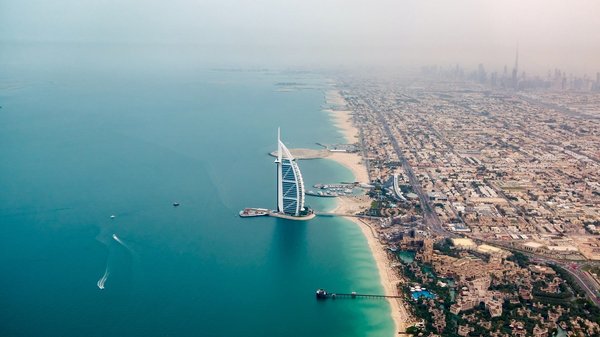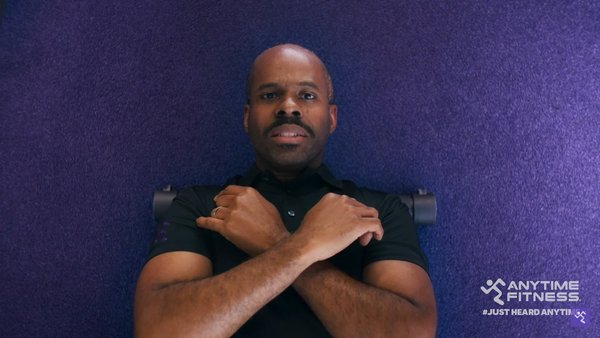Cannes Lions Contenders 2024 /
Contagious’ analysts and editors predict which campaigns will win Grands Prix at the Cannes Lions International Festival of Creativity
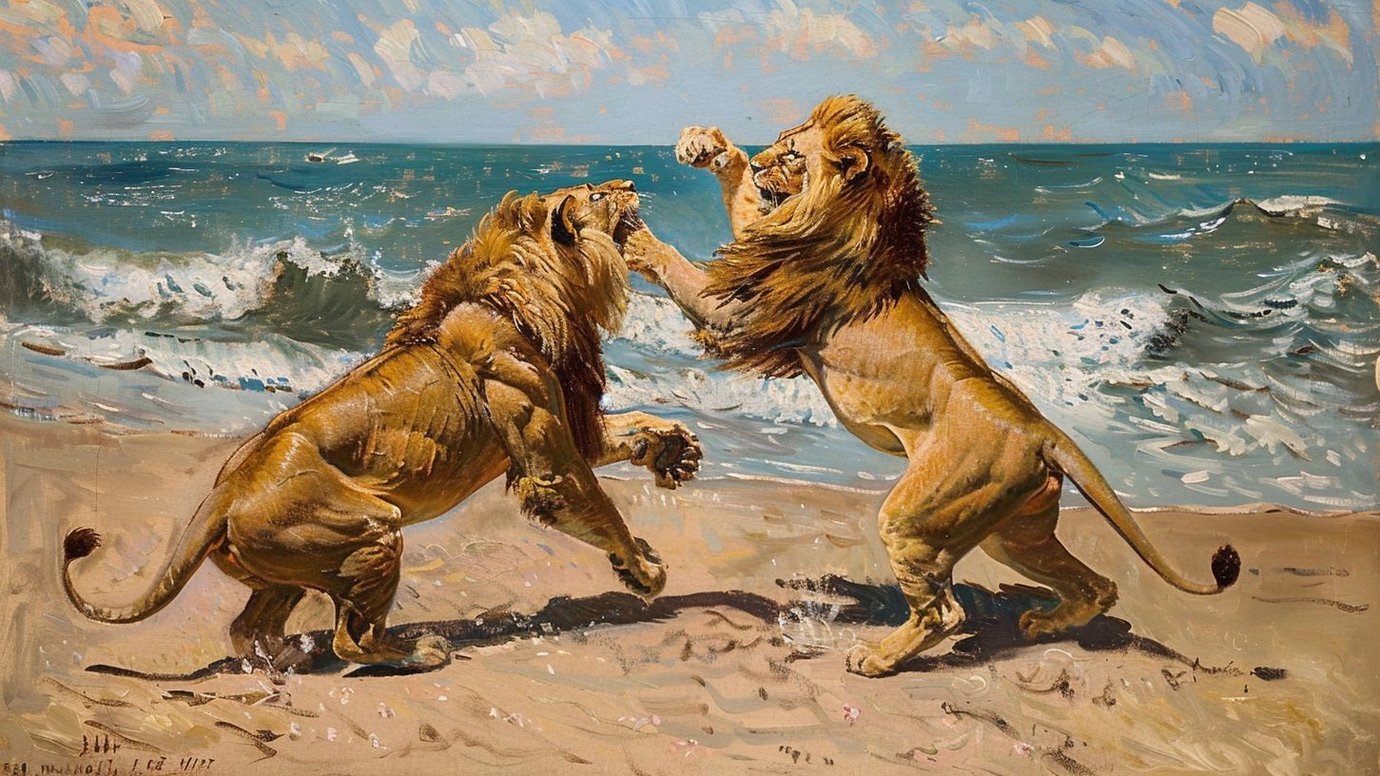
(Image generated using Midjourney)
Ahead of the most prestigious and influential awards show in the ad industry calendar*, the Contagious team have put their heads together and their reputations on the line to predict which campaigns will (or should) win big at Cannes Lions in 2024.
We do this because we spend a lot of time analysing the best examples of commercial creativity from around the world, and we believe we have informed views on the subject. But also because we enjoy saying, ‘told you so’.
*We’re not lickspittles: we said the same thing about Cannes Lions before before we were acquired by its parent company.
Next to Stok’d for Stok’d by Angry Butterfly, Toronto /
I’m a big believer in the creative power of constraint. In my years of analysing campaigns at Contagious, I’ve seen first hand how it’s often the brands with the gnarliest challenges, not the biggest budgets, that create the most boundary-breaking marketing.
Ontario cannabis retailer Stok’d has quite the challenge, given that advertising its products is illegal in Canada. But the brand blazed past these restrictions by creating ads for neighbouring businesses that subtly nodded to the cannabis retailer.
When we interviewed Brent Choi, CCO at Angry Butterfly, he explained that cannabis retailers in Canada struggle to differentiate themselves. ‘You're selling on service and brand and location because everyone sells the same product,’ he said.
By joining forces with its neighbours, Stok’d celebrated what makes it stand out in a chronically saturated market: its home-spun, Canadian persona. This is, after all, a brand that prides itself on its ‘chill neighbourhood vibe’ and has a seven-foot beaver in one of its stores.
I don’t know if juries will appreciate the abundance of cannabis-related puns in the ads, although I certainly did. But I do think they will recognise the ingenuity behind this clever marketing loophole and acknowledge that there’s a pretty dope strategy at work here.
Chloe Markowicz, editor
iJack for BMW by Serviceplan, Dubai /
I’ll admit that I quite like devious marketing. Not ‘make rainbow-coloured nicotine products that taste like Chewits’ levels of deviousness, but I can appreciate ads that employ Machiavellian means to get their message across, provided they meet two conditions.
First, the idea must be original, or at least amusing. Second, the campaign must not inconvenience people — especially not me. Clear those hurdles, and you can exploit as many loopholes and stray into as many ethical grey areas as you please, as far as I’m concerned.
Which is why I’m backing BMW’s iJack campaign to win big at Cannes — it’s just the right amount of devious.
The automaker took pictures of its new electric car at over 300 vehicle charging stations across Dubai, and then uploaded those images to the review page for each power point on Google Maps.
Few people in the UAE have charging stations in their homes, so one of the first things prospective EV buyers do is search for their nearest power point. When they did, the iJack campaign ensured they saw a picture of a nice, shiny BMW.
Test drives for BMW increased 400% as a result of the campaign. Roguish? Maybe. Grand-Prix Worthy? I think so.
James Swift, insights editor
Recipe Run for KFC by PS21, Madrid /
At Most Contagious in December, I made an impassioned pitch for why KFC’s Recipe Run was one of the best gaming campaigns of the year. For those of you who weren’t there, let me speed-run that talk for you.
When KFC saw that the new Zelda game included a character who shared a striking resemblance to its founder and mascot, Colonel Sanders, it challenged players to collect 11 specific herbs and spices within the game and cook the brand’s signature chicken in the fastest time possible for the chance to win vouchers.
The Recipe Run challenge was a huge hit with Zelda fans and the speedrunning community, with over 100 hours of user-generated content created and 2,400 coupons redeemed.
I may be biased, having invested about 50 glorious hours in The Legend of Zelda: Tears of the Kingdom, but that’s more reason for me to advocate for the campaign — because it was made for gamers.
When I spoke to the inaugural Entertainment for Gaming jury president, Francine Li, at Cannes last year, she said she was looking for campaigns that understood gamers and earned their attention, rather than pushing a message onto them. If that’s the criteria this year, KFC is a shoo-in.
Sunil Bajaj, senior writer/analyst
WoMen’s Football for Orange by Marcel Paris /
This is the year jurors at the Cannes Lions festival will see a lot of awards submissions for campaigns that used AI for the sake of it — but WoMen’s Football is not one of them. While many brands contented themselves with bolting on AI to humdrum creative executions to court easy publicity, Orange and Marcel asked themselves how they could use the tech to achieve their objectives.
The result was a campaign that forced audiences to confront their biases by showing them player highlights from France’s men’s football team and then revealing that the footage was really of female players, with male players’ bodies superimposed on top.
As well as challenging sexist views, the campaign served to generate excitement for the women’s World Cup, which would ultimately benefit Orange as a sponsor of the women’s French national team, by attracting more eyeballs.
A great example of a campaign doing well by doing good — with a gooey AI filling.
Becca Peel, head of advisory, North America
The Misheard Version for Specsavers by Golin, London /
Every millennial remembers the first time they got RickRoll’d. If you’re like me, it was probably such a traumatic experience that it fundamentally altered your DNA. To this day, you might still hover over hyperlinks with a certain amount of trepidation. Not for fear of phishing scams, you understand, but rather in nervous expectation of having the unsolicited sounds of the 1980s suddenly explode in your eardrums.
But Rick Astley is back, baby; this time with a purpose beyond simply embarrassing people in public spaces.
Specsavers and Golin commissioned the singer to transform his hit single into a mass hearing test for Britain. Just eight hours after it was released, the song was played 20 million times, and Specsavers earned 400 pieces of media coverage and enjoyed a 66% year-on-year increase in hearing tests.
The campaign definitely deserves a gong. But this is Cannes Lions, you know the rules, and so do I. The judging gods can be fickle and there’s no such thing as a sure thing. That said, I’m quietly confident that ‘The Misheard Version’ will be no stranger to love in the Palais this June. A full commitment’s what I’m thinking of.
David Beresford, senior strategist
[For more in-depth insights on this campaign, including some words from Astley himself, click here.]
The Everyday Tactician for Xbox, Sega and Football Manager by McCann, London /
Most players of football manager games have led an underdog team to glory and deluded themselves into thinking they have what it takes to coach for real.
It’s why when Xbox and Football Manager 24 partnered with Bromley FC to offer one
gamer a six-month professional coaching contract, fans flocked to Xbox to land the role.
But beyond the imaginative and tantalising prize, The Everyday Tactician stood out by demonstrating an understanding of how football fandom is changing, with fewer beer-bellied louts bellowing ‘he’s not fit to wear the shirt’ at players from their seats, and more stat-obsessed supporters who conduct elaborate tactical breakdowns of matches to find flaws.
These fans crave a game that takes football as seriously as they do, and what better endorsement for Football Manager 24 than having a professional football club recruit someone from among its best players?
Following the contest, Exell Films and McCann London filmed a documentary charting the winner’s progress at Bromley which went up on TNT Sports’ Youtube channel. The campaign achieved more than 1.5 billion impressions overall, and made FM24 the most-played edition of the game of all time.
Don’t be surprised to see The Everyday Tactician lift a trophy at Cannes this summer.
Alex Poultney, writer/analyst
Operation No Grey for Fiat by Leo Burnett, Turin /
I’ve probably watched thousands of campaign films in my time at Contagious — plenty of good ones, but oh-so-many stinkers. Most of the bad ones are just confusing, with convoluted insights and tenuous brand statements. The worst ones try to support outlandish claims with nonsense results.
So, when I saw Fiat’s Operation No Grey ad for the first time, I was sold on its simplicity. Grey cars out, colourful cars in, ordered Fiat boss Olivier Francois. Say less, said Leo Burnett. According to the agency’s executive creative director, Francesco Martini, Francois’ only direction was to be bold. The result? Francois waltzing around a picturesque Italian piazza, explaining why grey (the most popular car colour) doesn’t fit with Fiat’s ‘Dolce Vita for All’ positioning, before getting into a grey Fiat 600e hatchback and being lowered into a towering vat of orange paint. Out comes the car, de-greyed, dazzling orange and victorious, with Francois smiling at the wheel. Maybe I’m just tired, but I reckon this will go down well at Cannes this year, even if it’s just because it cuts through jurors’ case study fatigue.
Phoebe O’Connell, senior writer / analyst
Re:Charge for Dat Bike by Happiness Saigon /
Sometimes when governments become too distracted by in-fighting or too constrained by budgets to get things done — which seems to have been happening more and more over the past decade — brands step in to fulfil civic functions, to help people and also be seen helping people.
This happened in Vietnam when e-bike brand Dat Bike arranged for its bikes to be used as emergency power generators, to help small businesses affected by power outages during Tết, a Lunar New Year festival and a key trading season in the country. Businesses such as tattoo parlours, rice plate shops and grocery stores, could contact local Dat Bike owners whenever a blackout occurred in Ho Chi Minh City to ask to borrow some juice.
Not only is this an example of brand do-gooding, it also showcases Dat Bike’s charging and battery capabilities. By empowering Dat Bike owners with the responsibility to serve their communities, the campaign also fosters a sense of belonging and mutual support among bike users.
Goodwill, a smart product demo, and a focus on building communities: this is a campaign that juries at Cannes are sure to appreciate.
Melanie Valenzia, senior researcher
Cars to Work for Renault by Publicis Conseil, Paris /
Renault has a history of sponsoring schemes that give low-income people access to vehicles. The problem is, most people don’t know that, and 12 years later, its Caremakers inclusive mobility programme is still relatively unknown.
To rectify that, the French automaker created a new kind of lease for job seekers in out-of-the-way areas. People who took out these leases only had to start paying them off once they had passed their probation period, and those that didn’t could just sell the car back to Renault.
Not only did this provide a genuine utility to new-job starters, and play a positive role in the national narrative — the ‘gilets jaunes’ protests in 2018 show how much French people care about mobility issues — it also boosts Renault’s visibility among target customers in areas where car ownership is essential.
And even though purposeful campaigns are not quite as dominant as they once were at Cannes, that kind of work still carries a lot of weight among juries. And what makes this campaign a shoo-in is that it does purpose right, in a way that makes business sense.
Manon Royet, senior researcher
Michael CeraVe for CeraVe / WPP/Ogilvy PR, North America /
Some advertising partnerships, like CeraVe teaming up with actor Michael Cera, are simply a match made in heaven.
The skincare brand was looking to highlight its dermatologist-developed products in its Super Bowl debut, but the ad spots that run during the big game are typically packed with A-list celebrities, not dermatologists.
So CeraVe approached Cera, who lent his awkward comedic style to help the brand execute a convoluted and attention-grabbing PR campaign. Beginning weeks before the Super Bowl, the bit started with a social media-driven conspiracy that CeraVe was developed by Michael Cera himself — helped along with paparazzi shots of Cera buying the skincare products in bulk — before culminating in a humorous 30-second spot where the actor pitches himself as a frontman for the brand.
According to the agency, the campaign earned 32 billion impressions and sparked a 2,200% increase in searches for CeraVe. What made this campaign unique was its buildup, where the majority of the buzz was generated beforehand, setting the stage for an eagerly anticipated debut during the big game. It’s this kind of imaginative approach (and eccentric collaboration) that turns logistical challenges into brand-building triumphs, setting the stage for deserved awards-season glory.
Alice Liow-Yune-Loy, senior researcher
All the Ads for Doordash by Wieden+Kennedy, Portland /
There was nothing especially novel about Doordash’s 2024 Super Bowl campaign. We’ve seen campaigns challenging people to decipher really long website URLs before (eg, Cube Bike’s 2015 radio campaign). We’ve even seen brands promise to give away every product advertised during the Super Bowl before (eg, McDonald’s, 2015). And ever since It’s A Tide Ad ran in 2018, many brands have made ads that attempt to connect their own message or product with all the other Super Bowl spots, in a bid to extend their time in the spotlight — and in people’s consciousness — as much as possible.
But novelty is not the only measure of creativity. Appropriateness counts, too. And the Doordash campaign brought together those existing tactics and elements in a way that just worked for the brand. The giveaway was big and generous and reinforced the message that the Doordash brings you things, and the ad repeated the word ‘dash’ so many times that it probably bypassed people’s long-term memories and burrowed directly into their hindbrains. That’s why I dash it deserves to dash dash at Cannes dash this dash.
James Swift, insights editor
Pack Yer Bags for Yorkshire Tea by Lucky Generals, London /
Songs written by – or for – brands don’t often tickle the juries at Cannes.
It’s been 11 years since Dumb Ways to Die, a public safety announcement disguised as a lilting list of elaborate and unpleasant ways to get yourself killed, picked up five Grands Prix for Metro Trains Melbourne.
It’s been eight years since tea makers Brooke Bond Red Label assembled the transgender 6 Pack Band and scooped the Grand Prix in Glass for an upbeat cover of Pharrell’s track ‘Happy’.
So not only does it feel as though another Cannes Lions musical success story is long overdue, but once again it’s the tea category that has brewed up an absolute banger: Pack Yer Bags, performed by Skipton Alfie for Yorkshire Tea.
It works on so many levels. It’s a summer anthem that majors on Britishness AND ticks the ‘insight’ box, celebrating the nation’s proud determination to take their preferred tea bags on holiday with them. It plays for laughs, memorably and likeably immortalising the classic lads’ trip to Ibiza with winking references to the joys of budget airlines and substances other than tea. It shouts out to iconic daytime TV presenter Lorraine Kelly. It rallies a nation to the cry ‘Let’s get lightly caffeinated!’. Paul Feldwick would like it, but so would Mike Skinner!
Nobody really expects a brand to write the feel-good hit of the summer, but when they do they should be rewarded – ideally with a Grand Prix and a proper brew.
Katrina Stirton-Dodd, editor at large
Ketchup and Seemingly Ranch for Heinz by Rethink, Toronto /
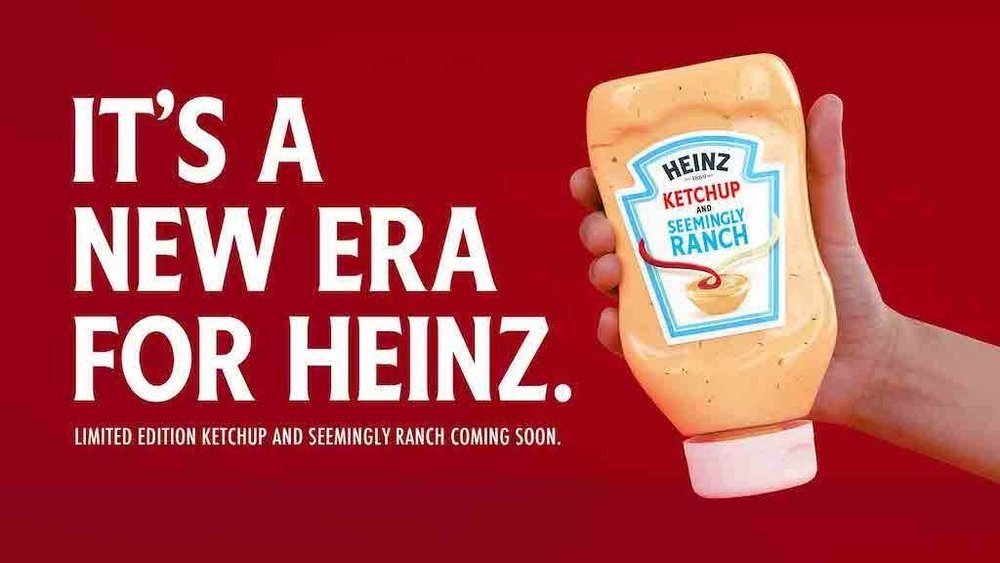
Heinz Ketchup is a brand on a hot streak. It has landed on a strategy — reminding everyone how popular and famous it is — that’s both effective and creatively fertile, and for three years it’s been putting out nothing but bangers. There’s no way Heinz will leave the Cote d’Azur without some serious metal this year. But which campaign will earn a Grand Prix?
Heinz’s self-assured-yet-self-effacing print and film campaigns (like The Wait) are paragons of traditional advertising craft. And its product innovations (like its TikTok-inspired pasta sauce made with Absolut Vodka) demonstrate a deft understanding of new media and audience behaviours.
But if I had to single out one of its campaigns to win big at Cannes — which, I’ve been reminded, I do — I’d go for Ketchup & Seemingly Ranch, Heinz’s response to a Taylor Swift fan’s excited tweet about the singer’s choice of condiments while watching an NFL game in which her new boyfriend, Travis Kelce, was playing.
The campaign was confident, fun and inextricably linked to the product. But even if it isn’t Heinz’s best ad, I think the Cannes Jury should still give Ketchup & Seemingly Ranch the Social & Influencer Grand Prix as an acknowledgement of its overall excellence. A bit like when Leonardo DiCaprio got the Oscar for The Revenant.
James Swift, insights editor
Coors Lights Out for Coors Light by Rethink Toronto /
When the greatest player in baseball breaks your brand's digital billboard mid-game, what do you do?
Look no further than Coors Light's knockout response to that exact scenario. In a New York City stadium, Shohei Ohtani hit a foul ball that left a square of dead pixels on the top left corner of a digital billboard showing a can of Coors.
It was sheer happenstance, but the brand's creative agency, Rethink Toronto, quickly launched a campaign that capitalised on the viral moment. An initial tweet turned into the launch of a commemorative beer can (beer not included) that paid homage to the bundle of dead pixels.
The results are impressive, with enough earned impressions and organic views to fill an unimaginable number of baseball stadiums. And Coors Light showed it can turn viral attention into a genuine connection point with sporting audiences and transform a moment into memorabilia.
It was fan service done right, enshrining Coors Light as the beer of baseball and executed with a capability that deserves a Grand Prix or two across the Outdoor, PR and Media categories.
James Barry, associate strategist
Want more Cannes Lions insights? /
Contagious’ analysts and strategists spend their time at Cannes Lions interviewing jury presidents and attending seminars and press briefings, to find out what’s really going on.
Then, we use our two decades of experience to put those findings into perspective and analyse what they mean for marketing and the marketing industry.
Finally, we condense all those insights and case studies into an informative, insightful and (occasionally) entertaining 50-minute briefing that we deliver to brands and agencies.
Book a Cannes Deconstructed briefing and you’ll learn:
- The strategies that underpin the big winners
- The jury perspective on what it took to win in 2024
- The trends that are shaping the most effective, influential work and what they mean for brands
- The brands and campaigns that are raising the bar
To find out more, click here.
Want more of the same? /
We don’t just write about best-in-class campaigns, interviews and trends. Our Members also receive access to briefings, online training, webinars, live events and much more.
